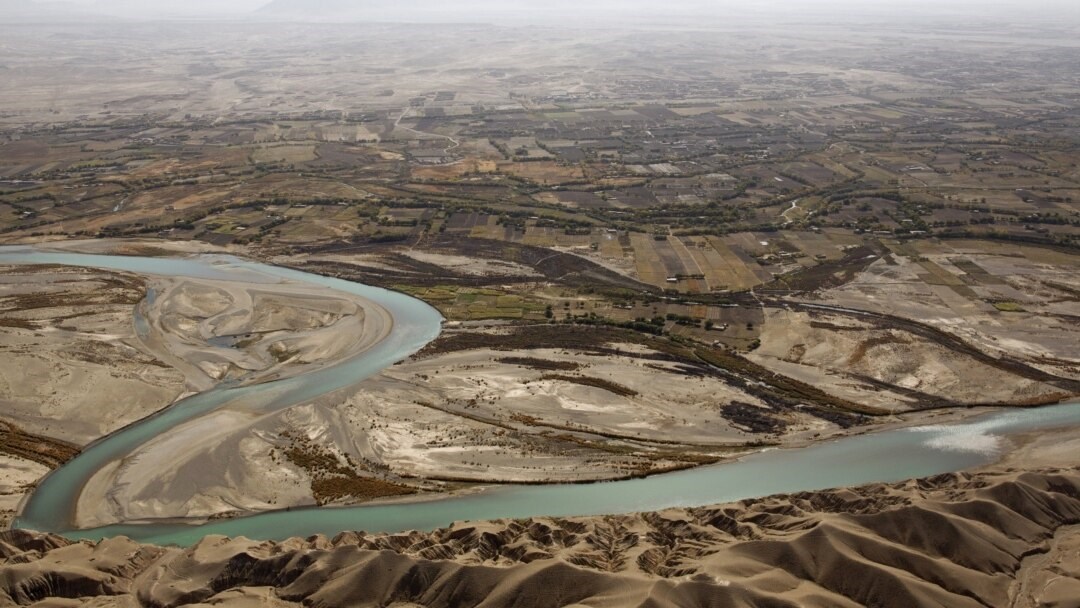Iran urges Taliban to allow expert visits to Helmand Dam over shortage
Iranian Foreign Minister Hossein Amir-Abdollahian's had visited Iran's Sistan and Baluchistan Province on Thursday, stating that the Taliban haven't allowed Iranian experts to investigate the matter.
-

An aerial view of Afghanistan's Helmand River in an undated photo. (AFP)
Afghanistan’s Taliban government has been urged again by Iran to allow expert visits to the dam built on the border Hirmand (Helmand) river over claims by the Taliban that it does not have enough water to supply and share with Iran.
This comes after Foreign Minister Hossein Amir-Abdollahian's visit to Sistan and Baluchistan Province on Thursday, where he said that the Taliban hasn't allowed Iranian experts to investigate the matter.
Amir-Abdollahian raised the topic of Iran's water rights with the Taliban government’s acting Foreign Minister, Amir Khan Muttaqi, warning that this could undermine bilateral relations.
The Helmand River, the longest waterbody in Afghanistan, rises in the Hindu Kush Mountains of Kabul and empties out into the Hamoun wetlands, located in Iran’s Sistan and Baluchistan Province.
According to Amir-Abdollahian, to confirm the lack of water, technical and objective inspections need to be made by experts not issuing political statements, stating that "a technical delegation from Iran’s Ministry of Energy and from the Afghan side should jointly visit the Kajaki Dam and measure the water situation, release the water and see whether or not this water enters the Sistan region."
He added that “under the treaty, this is the natural right of Sistan and we are seriously pursuing this issue" as the Taliban claims that the Iranian demands to provide the people with their share of water are harmful.
Iranian President Ebrahim Raisi warned on the sidelines of the inauguration ceremony of water and electricity projects in the province that his country will not tolerate rights violations and that the river has been enshrined in previous treaties.
Raisi warned that "if our experts confirm the lack of water, we have nothing else to say, otherwise we will not allow the rights of our people to be violated" and called on Afghan authorities to take his words "seriously and not complain later."
Afghanistan has named climate change as the reason behind the reduced river volumes.
A water-sharing accord on the Helmand River was ratified in 1973, under which Afghanistan vowed to deliver an average of 820 million cubic meters of water per annum to Iran, which has frequently condemned the former for failing to comply with the agreement.
The construction of many hydroelectric projects on the river, including the important Kamal Khan Dam in Afghanistan's Nimrouz province, and the Kajaki Dam 100 miles (160 km) northwest of Kandahar province, have caused a major rift between them.

 3 Min Read
3 Min Read










